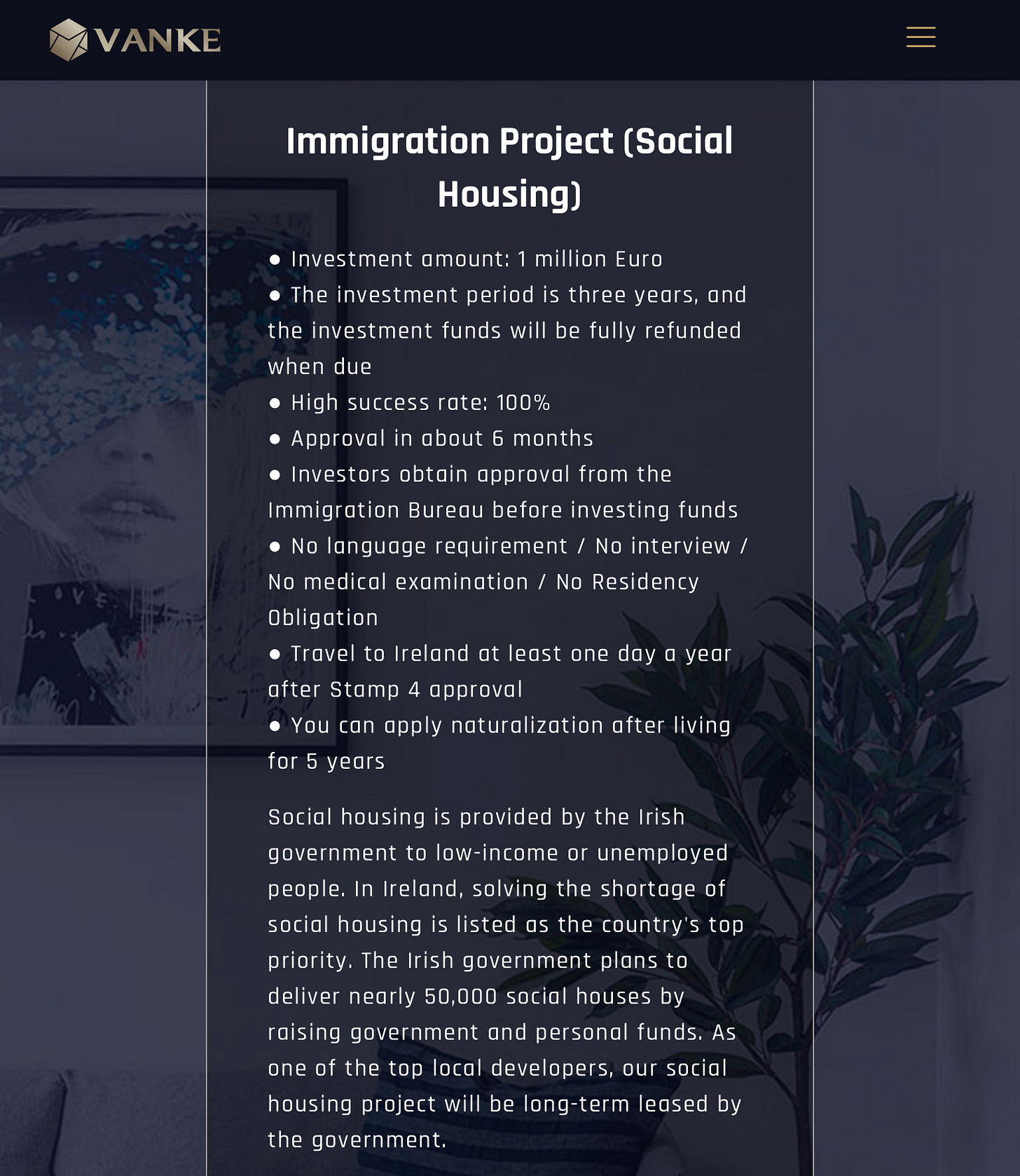Spain Set To Ban Vulture Funds
Spain’s radical measure could turn the tide on housing crisis
The Spanish government recently announced a raft of suggested measures to address the ongoing housing crisis facing the country including tackling the purchase of homes by investment funds.
The move, if enacted, would see the imposition of a 100pc tax on the purchase of homes in Spain by those outside the European Union (EU) to prevent speculative buying which sees homes not as social goods but as investment assets leading to sky-high prices.
“For non-resident non-EU nationals the tax burden will be up to 100pc the property’s value,” Spanish Prime Minister Pedro Sánchez said when announcing the proposal.
“In 2023 alone non-residents from outside the EU purchased 27,000 houses and flats, not to live in them because mainly they bought them to speculate, to earn money with them, which is something that in the context of the problems many people are experiencing is something we can’t permit.”
Among other moves considered by the Socialist-led government, which consists of the far-left parties PSOE and Sumar, includes the transfer of over 30,000 homes by the country’s ‘bad bank’ over to a Public Housing Company. This is on top of the handing over of more than 3,000 homes and close to 2 million sqm of land zoned for residential housing to the same company.
Indeed, in prioritising the incentivisation of public housing Sánchez unveiled the unlocking of a new legal mechanism whereby all housing built by the State will remain in public ownership ad infinitum.
“Whatever is built or rehabilitated with Spanish money will always belong to Spaniards, for their children and grandchildren, rather than end up in the hands of vulture funds and big speculators", he added.
More recently, Madrid indirectly tackled the scourge of foreign home purchasing through the abolishment of the “golden visa” scheme which granted residency to those who purchased a property worth over €500,000 with 5,000 people availing of this scheme since it opened in 2013.
In many ways, Spain typifies the housing crisis afflicting the Western World.
In the past decade house prices have surged by 48pc; social housing is less than 3pc of the overall housing stock compared to the EU average of close to 10pc; last year, rents rose by over 6pc with a flat in Madrid now costing €1,500 per month compared to average salaries of €23,568.
Indeed, the idyllic country’s housing woes have pitted Zoomers against Boomers with the latter category basking in their high-flying assets while the former are languishing with either sky-high rents or static mobility confined to their childhood room: The number of employed young people aged 25-to-34 still living at home with their parents has risen from 35pc in 2017 to 42pc in 2022 while the number of young people owning their own home has dropped from 66pc in 2002 to 31.8pc in 2022.
Meanwhile, rents have risen by 16pc between 2014 and 2022 with the ‘overburden’ rate - those who allocate more than 40pc of their income on housing-related expenses - hovers at over 30pc compared to the EU average of 20pc, while the overburden rate among homeowners - mainly older generations - is slightly below the EU average at 4pc.
All of this has created a cocktail of societal upheaval which played out on the streets recently with mass demonstrations characterised - rather foolishly - as ‘anti-tourist’.
Late last year, thousands protested at a holiday resort in the Canary Islands to highlight the influx of tourism which locals argued has priced them out of the housing market.
Between January and September up to 10 million tourists flocked to the holiday hotspot, an over 10pc increase year-on-year. With a population of less than 3 million, this has understandably caused angst.
While tourism is in many ways a boon for Spaniards accounting for roughly 13pc of its GDP, the rise in short-term lets by companies such as Airbnb and Vrbo has accelerated pre-existing rental issues. For instance, in Barcelona - a population of 1.6 million - there are over 20,000 listings for Airbnb and Vrbo. In 2022 and 2023, rents rose by 12pc in the city while incomes rose by a measly 2.6pc. Over the past decade, average rents in the city have risen by 53pc. With the 290,416 rental apartments in the city almost 4 in 10 are owned by what Catalans call ‘grans tenidors’ or people or entities with ten or more properties compared to only 4.4pc owned by public administrations.
“Whatever is built or rehabilitated with Spanish money will always belong to Spaniards, for their children and grandchildren, rather than end up in the hands of vulture funds and big speculators” - Pedro Sánchez
To tackle this, Barcelona has enacted a long-term measure recently announced by the city’s Mayor Jaume Collboni which will ban all short-term letting by 2028, and a short-term measure to ramp up inspections of properties.
The national government under Sánchez specifically hit out at short-term lets by tourist bodies by proposing the implementation of a tax on tourist rentals ‘on par with other economic activities’. Madrid also mentioned increased regulation on tightening the prosecution of fraud in so-called ‘seasonal rentals’ with the accompaniment of a fund that regional and municipal governments can tap into to reinforce inspections.
But what really stood out and generated headlines was the above-mentioned 100pc levy on foreign non-EU purchasing of homes.
Seldom shy in displaying post-imperial victimhood, the English press was rife with speculation that such a move was directed at Britons.
Spain plans to hit British expats with a brutal tax hike in row over second homes ran an Express headline.
While 300,000 Britons reside in Spain, the non-EU aspect of this proposal may irk this sizeable cohort. However, the move by the Spanish is part of a trend among Western nations who understand the glaringly obvious: that overseas buyers, mainly investment funds, are distorting the housing market by financialising housing and turning it into an asset class with no amount of supply reducing prices as a result.
Canada recently announced a two-year extension to their ban on foreign purchase which it passed in 2022 under the Prohibition on the Purchase of Residential Property by Non-Canadians Act to ban foreign investors from buying residential property.
In 2018, New Zealand’s then-governing Labour Party passed a law that prohibits foreigners, with the exception of Australians and Singaporeans, from purchasing existing homes with Australia enacting similar measures.
Several European countries have either proposed or banned foreign purchases. In Portugal, an opposition party presented a bill to ban foreign purchases to “combat rising housing prices” having already banned its golden visa property purchase scheme. In Austria, foreign purchase is prohibited unless certain criteria are met including a residency permit in the capital city of Vienna. In Denmark, those who have not been resident for five years must apply for permission from the government when purchasing a property. In Switzerland, the different Swiss cantons have specific quotas for foreign purchasers with the maximum being 1,500 per year.
Many of these bans were implemented on the basis that they increase the price of housing. Speaking on the proposal the recently departed Canadian finance minister Chrystia Freeland mentioned that, “For years, foreign money has been coming into Canada to buy up residential real estate, increasing housing affordability concerns in cities across the country, and particularly in major urban centres”.
She added: “Foreign ownership has also fuelled worries about Canadians being priced out of housing markets in cities and towns across the country”.
Indeed, this has been borne out by research from the Republic of Ireland. According to the Irish Central Bank, from 2007-2019 homes purchased by institutional investors increased the level of rents by 4.1pc more than other landlords with comparable properties following purchase. The study also found that landlords within 100 metres of an institutional investor raised monthly rents by 2.3pc more than landlords who are further away after an institutional investor moved in.
In a display of brazenness on a monumental scale, one such foreign entity which engages in such investment based in China named VANKE brags about the high rent thus high-yielding Irish rental market when encouraging investors to capitalise on Dublin: “The [Irish] population is growing fast and the new land available for development are also very limited” meaning “property prices in Ireland are set to continue rising”, before adding that, ‘investment property in Ireland is certainly an attractive option with small apartments located in Dublin earning gross yield of 7-10 percent’.
Indeed, before Dublin closed its Immigrant Investor Programme (IIP) due in part to the disproportionate number of applications from China, VANKE encouraged investors to invest in social housing: “Social housing is provided by the Irish government to low-income or unemployed people.
“In Ireland, solving the shortage of social housing is listed as the country's top priority. The Irish government plans to deliver nearly 50,000 social houses by raising government and personal funds. As one of the top local developers, our social housing project will be long-term leased by the government.”
Currently, Ireland has no restrictions on foreign buyers with 4 in 10 homes in the country ‘bulk purchased’ in 2023. While this also includes domestic housing bodies, many overseas investment funds have used their capital to purchase entire housing estates meant for first-time buyers but instead rededicated as high-yielding rental properties.
Irish Property Advisors Savills reported that 2023 was a bumper year for foreign purchasers in rural Ireland: “Transactions totalling €190.6 million were conducted last year for country homes… valued at more than €1 million”, according to the Irish Times.
While it may be easy to dismiss Spain’s move as that of a scandal-ridden socialist government attempting to generate favourable headlines, particularly with the youth, and stick it to the Brits, governments worldwide should explore enacting outright bans or restrictions on foreign purchasers who are exacerbating housing affordability issues.
Instead of scoffing at this move, Britain should take inspiration from Spain, particularly in light of statistics that in Prime Central London in 2023 the proportion of homes purchased by an international buyer reached 45pc.
Given how decentralised Spain is with 17 autonomous regions enacting different policies as it relates to tax and spending, the government’s radical housing proposals may encounter democratic hurdles to get past the finishing line.
But one thing is for certain: the deglobalisation trend is only accelerating and is impacting almost every facet of public policy including housing.







Attacking FDI seems like the wrong approach to removing outsized returns to artificial scarcity though. The real issue is making it legal to build. “You can build anything in the local vernacular except heavy industry without even needing a permit on land you own” would solve the problem in one step.
A slight useful modification for Ireland may be excluding towns over 50k population to avoid creating an empty island with one megacity covering the east coast and a heavy satellite in Cork City.
Foreign investment then might well be welcome if it is happy with whatever rate of return remains.
Apparently they might not be able to do it